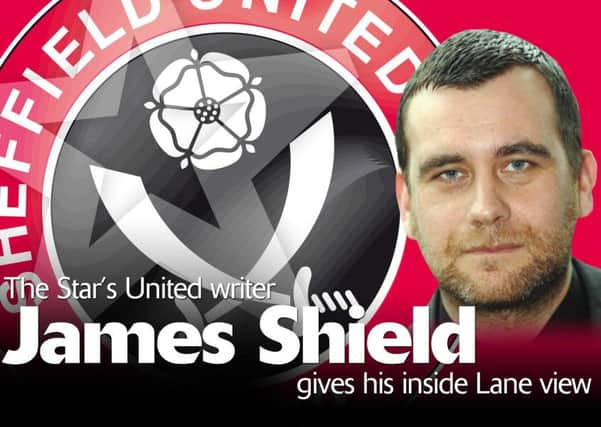James Shield's Sheffield United Column: Transfer dealings and PR wars


As the Sheffield United manager has discovered this month, they can change attitudes towards transfer policy too.
Despite signing 12 new players since being appointed in May - an average of one every 1.3 weeks - the 48-year-old’s employers were accused of “leaving everything until the last minute” as Wednesday’s deadline for permanent signings loomed. Admittedly the charges were levelled on social media, (Wilder doesn’t strike me as the kind of guy who spends time trawling through Facebook or Twitter), so any irritation caused will have been minimal. But, the inevitable difference of opinion about the quality and suitability of those acquired apart, the fact some folk even felt this was a worthwhile argument probably has more to do with results before last weekend’s victory over Oxford than any perceived lack of activity on United’s part.


Advertisement
Hide AdAdvertisement
Hide AdWilder has described the recent window as the most challenging of his career. Which, given that he has been battling to change how United are viewed by rival clubs as well as secure their leading targets, is hardly surprising. The decision to adopt a more prudent approach towards recruitment is sensible, correct and should be welcomed. But it also means, in this image conscious age where style is everything and substance something you hide from the police, that United have been fighting a public relations war too.
Most, but admittedly not all, of Wilder’s predecessors have been allowed to overspend by Bramall Lane’s hierarchy in recent seasons. Although the fees paid have not always been the highest, the numbers splurged on wages have left other teams in the shade. Very little, other than heartbreak and disappointment, has been received in return. (Two major cup semi-finals during Nigel Clough’s reign being the obvious exceptions).
By focusing on Championship talent, under the misguided assumption this would turn them into a Championship side, United used to be masters at paying a premium for players whose careers were largely on a downward curve. By trying to cherry-pick the best available performers in League One and League Two, Wilder is attempting to rectify this situation although, as he has discovered, many of their rivals for promotion still view United as a cash cow. United’s change of tact is also borne out of necessity with the financial chasm between the second and third tiers of English football - Aston Villa’s parachute payments equate to nearly nine decades worth of television revenues, solidarity payments and other assorted League One incomes - making it almost impossible to shop a level above.
Of course, unless United are in or around the top two come Christmas, the clamour for them to revert to type will grow.